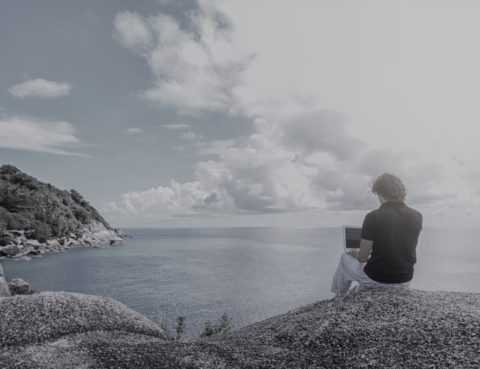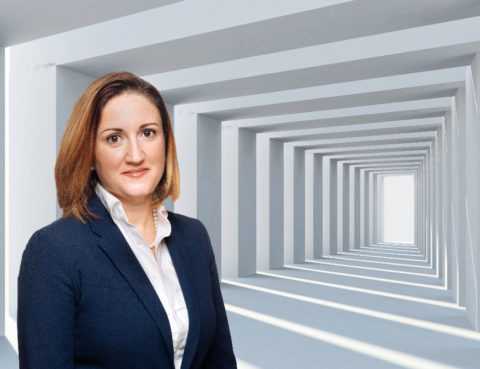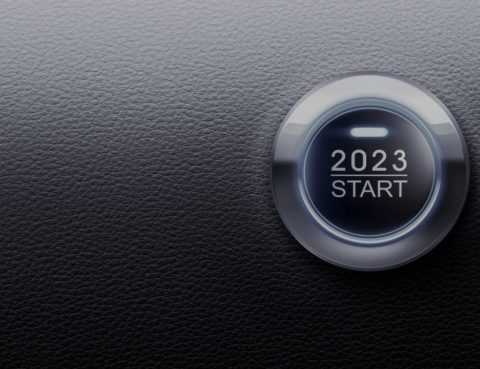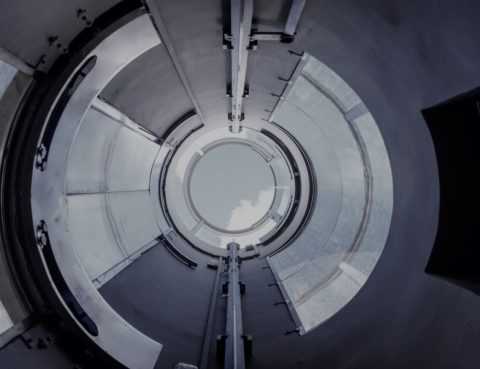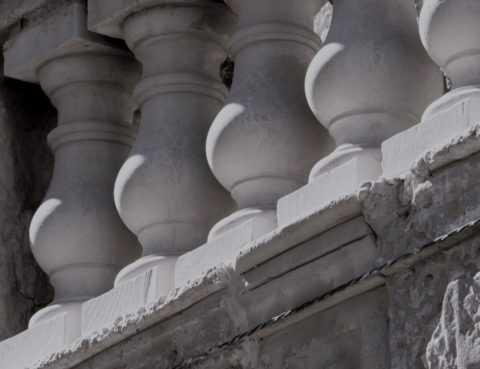The Malta Nomad Residence Permit is aimed at attracting digital nomads who can work remotely from Malta. The country has been attracting digital expats ever since Malta has become a hub for online gaming and now has enacted a legal framework to grant a residence permit to non-EU digital nomads. The country ticks all the boxes for digital expats with Malta’s location in the middle of the Mediterranean making it a stone throw away from Europe, the Middle East, and North Africa.
In addition, digital nomads are flocking to Malta since English is the country’s official language and the language used by main businesses.
The following are frequently asked questions about immigrating to Malta under the Nomad Residence Permit.
Who is Eligible to apply for a Nomad Residence Permit?
An individual applying for this permit must prove that he/she is a non-European national who can work remotely from Malta, using telecommunications technologies.
What type of employment engagements are accepted to be eligible for a Nomad Residence Permit?
To be eligible, the applicant must fall under one of the following three categories:
(i) Be employed with an employer registered in a foreign country and have an employment contract.
(ii) Conduct business activity for a company registered outside of Malta and of which the individual applying is a partner or a shareholder.
(iii) Offer freelance services to clients whose permanent establishments are outside of Malta and with whom the applicant has contracts.
What is the monthly income required to be eligible for a Nomad Residence Permit?
Applicants must reach a gross monthly income of €2,700, in addition to a 20% of the median wage for each family member.
The above-mentioned figure may be reviewed periodically, upon the publishing of the new median by the National Statistics Office.
How much is the Government Application fee to apply for the Malta Nomad Residence Permit?
The application fee is of €300 for the main applicant and €300 for each family member included in the application.
For how many months prior to the submission of the application does the applicant need to show the €2,700 income in case of employment?
The applicant needs to show a three (3) months bank statement of inward transactions from salary/income declared if he is employed with a company.
For how long does the applicant need to be in self-employment before applying for the Nomad Residence Permit?
An applicant must show a minimum of (6) six months of bank statements in case that he is conducting a business activity. Nevertheless, with regards to Self-employed and/or freelancers the application is vetted on a case-by-case basis in order for the Agency to determine whether such statements are admissible or not.
If the monthly income of €2,700 could not be shown every month can one month compensate for the other?
This will be taken in consideration, yet it must be explained in the Letter of Intent. Moreover, the applicant’s annual income must not be less than €32,400.
Who is not eligible to apply for a Nomad Residence Permit?
Citizens of the European Union and their family members cannot apply for the Malta Nomad Residence Permit.
Can Family members be included in the Nomad Residence Permit?
Yes, applicants may submit applications for their family members with their application or even when already holding a Nomad Residence Permit or a Visa. The duration of the residence permit issued to family members depends on that of the Main Applicant.
Who is defined as a Family member?
For the purpose of this policy, family members are defined as:
(i) the spouse of the main applicant in a monogamous marriage or in another relationship having the same or a similar status to marriage, including a civil union, domestic partnership, common law marriage, provided that for the purpose of these regulations, the term “spouse” shall be gender neutral, and saving the CEO of Residency Malta Agency’s discretion to authorise, on a case-by-case basis, other relationships having a similar status as aforesaid.
(ii) a child, including an adopted child, of the main applicant or of his spouse who, at the time of application, is less than eighteen (18) years of age.
(iii) a child, including an adopted child, of the main applicant or of his spouse, who at the time of application is over eighteen (18) years of age, is not married, and who proves, to the satisfaction of the Agency that at the time of application he is principally dependent on the main applicant, moreover, the same applies to children with a medical condition or disability.
Can family members work in Malta with their Nomad Residence Permit?
Residence permits issued to family members under these guidelines do not grant them the automatic right to work in Malta. The said third country nationals who wish to take up employment in Malta must apply for an employment license with Jobsplus.
What is the duration of a Nomad Residence Permit?
A residence card under this permit is issued for one (1) year and can be renewed upon application at the discretion of the residency agency. The applicant can also opt for a shorter
Can the applicant opt for a shorter period such as between 91 to 180 days?
Yes, in such case a Nomad Residency Visa will be issued.
Can an applicant reapply after being issued with a refusal letter?
One cannot reapply under this programme after being issued with a refusal for a previous application.
What is the timeline of the application process?
The Application process under the Malta Nomad Residence Permit is approximately thirty (30) working days following submission of the application and payment of the application fee.
What does the Application Process entail?
The application is to be submitted via e-mail along with the supporting documentation as per the programmes’ checklist. Once vetted by the government agency, a receipt of application is sent with instructions for payment of the €300 administrative fee for each applicant. The administrative fee is to be paid by means of a bank transfer.
Once the payment is received the application will proceed to the due diligence stage where further checks will be conducted. When these checks are completed and a decision is made, the applicant and his representative shall be contacted via email with a decision letter.
Should the application be successful, a letter of Approval in Principle is issued with instructions to submit proof of accommodation and a Health Insurance Policy. At this stage the applicant is to visit Malta to attend an appointment to submit biometric information for the residence card to be issued.
When will Proof of Accommodation be requested?
Proof of accommodation in the form of a rental agreement or contract of purchase will be requested once an application is approved.
When should the Health Insurance Policy be submitted?
The Health Insurance policy can be submitted upon submission of application, yet it is suggested that this is submitted upon the issuance of the Approval in Principle letter.
How can ACC Immigration Assist?
ACC Immigration is licenced by Aġenzija Komunita’ Malta and accredited to submit Nomad Residence Permit applications on behalf of applicants. ACC Immigration holds licence number AKM-ACCA-22.
The Malta Citizenship by Investment Regulations issued by means of Subsidiary Legislation 188.06 provides for the grant of Maltese citizenship by exceptional services on the basis of exceptional investment in Malta.
Malta Citizenship by Direct Investment in 2022
In 2022, with the continuously evolving global dynamics and word politics a number of high-net-worth individuals are looking at investment options which lead to the granting of citizenship. By virtue of the Malta citizenship programme, investors can give their family members the opportunity to widen their horizon while becoming part of a new community in Malta.
Applicants under the citizenship regulations can only be submitted by duly licenced agents. ACC Immigration’s lawyers are licenced to assist applicants in submitting applications under this citizenship route.
Malta Citizenship by Direct Investment 2022 – Who Is Eligible?
Below the requirements to apply for the Malta Citizenship by Direct Investment
Residence and Genuine Connection to Malta
Prior to submitting a citizenship application, an applicant shall provide evidence that he was a legal resident of Malta for 12 or 36 months. During this period of residence, the applicant must also provide evidence of a genuine connection with Malta.
Property Purchase or Rental
The applicant shall during the residence period submit a citizenship eligibility application and undertakes that on approval he purchases a residential property valued at least at €700,000 or else rents a property for a minimum yearly rent of €16,000. Such property shall be kept for at least five years from when the Maltese citizenship is granted.
Donation
The applicant must also undertake that once the application is approved, he donates €10,000 to a registered philanthropic organisation.
Exceptional Contribution to Malta
The applicant also needs to make an exceptional contribution to Malta of €600,000 when a citizenship application is submitted after 3 years of residence or €750,000 when the application is submitted after 1 year. A non-refundable contribution of €50,000 applies for additional family members.
Malta Citizenship by Direct Investment 2022 – Due Diligence
When submitting a citizenship eligibility application, due diligence is undertaken on the main applicant and all family members. The cost for the due diligence is of €15,000 for the main applicant and €10,000 for each family member. The applicant can also include in the application a spouse or a partner in a long and durable relationship, and unmarried and financially dependent children who have not yet attained the age of 29.
The main benefits of the Malta Citizenship by Direct Investment in 2022
- Visa Free Travel to over 184 countries
- Citizenship of one of the most and stable countries in the World
- Applicant may include his family members
- Citizenship is granted for life
- Malta allows multiple and dual citizenship
- Citizenship is passed down to future generations
Learn more about the benefits of the Malta Citizenship by Direct Investment
The number of citizenship certificates to be issued in 2022 under these regulations shall not exceed 400 and a total of 1,500 for the duration of the programme.
Questions? Contact us or check our Malta Citizenship by Direct Investment FAQ Section
The Malta Nomad Residence Permit launched in June 2021 has proven to be a very successful initiative to attract non-European digital nomads to reside and work from Malta. In a press conference addressed by the Parliamentary Secretary for Citizenship and Communities it was announced that to date, the Residency Malta Agency has received over 180 applications with an average of one application every working day. The Agency is also expected to receive more applications when travel restrictions are eased globally. The scheme has attracted a number of digital nomads working in Malta who embrace a new remote model of working and living. Apart from a robust infrastructure Malta also offers a dynamic lifestyle, good weather and a friendly society and community. In addition, Malta’s official language is English, making the transition to Malta seamless.
The majority of applicants applying for the Malta Nomad Residence Permit hail from the United Kingdom and the United States with an average income of around €60,000. Most of the applicants are male with an average age of 27 years. Most of the digital nomads applying for this programme are employed with foreign entities and tend to work in management, Information Technology, or marketing.
The Malta Nomad Residence Permit Requirements
For a non-EU national to be eligible to apply for the Malta Nomad Residence Permit, one needs to prove a gross monthly income of €2,700. The applicant must also submit a letter of intent giving enough evidence that he/she can work from Malta by using technological means. To qualify, applicants must either be employed with a company registered outside of Malta or conduct business activities for a company registered outside of Malta of which the applicant is a shareholder or partner, or else offer freelance services to clients whose permanent establishments are in a foreign country.
Digital nomads may also bring their family members including one’s spouse and financially dependent children.
The Fund in which proceeds from Malta’s Citizenship by direct investment are directed is the National Development and Social Fund (NDSF). The NDSF is a government agency which was established in 2015 by the previous Individual Investor Programme Regulations under the Malta Citizenship Act (Chapter 188).
Malta Citizenship by Investment Fund: The Malta National Development and Social Fund (NDSF)
As per Article 13 of the IIP Regulations the NDSF shall received 20% out of the contributions received by the Malta Individual Investment Programme Agency (MIIPA). This Government Agency has now been substituted by Komunita Malta Agency. The NDSF is administered by a Board of Governors who shall be appointed by the Cabinet of Ministers and is responsible for ensuring the highest level of governance of he Fund. The Board of Governors is responsible for setting the investment strategy of the NDSF and for this purpose the fund has allocated three main portfolios, namely the Directed Portfolio, the Discretionary Portfolio and the Unallocated Portfolio. The Discretionary Portfolio holds 30% of all funds received from Komunita Malta. The NDSF has given an investment, management, custody and administration mandate to the Central Bank of Malta to manage this portfolio on a discretionary basis. The Directed Portfolio holds 70% of all funds received from Komunita Malta which are used for social and development purposes. Any funds which are not allocate to either the Directed or Discretionary Portfolio are retained in an Unallocated Portfolio. The Fund is required to publish annual audited accounts and an annual report which are tabled in Parliament and also subject to scrutiny by the National Audit Office.
The aim of the Malta Citizenship by Investment Fund
The main aim of the citizenship fund is to contribute towards supporting major projects and initiatives of national importance and public interest such as education, infrastructure, heritage, research and innovation, justice, the rule of law, sports, employment, and public health. The vision of the fund is to contribute towards the growth of the country’s sovereign wealth by adhering to the highest standards of accountability and transparency.
NDSF assistance during Covid-19
During Covid the Maltese Government has diverted 80% of the funds’ income to public finances to cushion the Covid-19 expenses. This temporary measure meant less funds to the NFSD. Under normal circumstances only 30% from the citizenship by investment programme is allocated to public finances with 70% going to the NSDF. Malta’s Prime Minister described the NDSF as a war-chest during the pandemic. During 2020, the NDSF received €27.8 million from Komunita Malta Agency, so that the total amount of proceeds received from inception to-date amounts to €599.8 million. In 2019, NDSF received €105.9 million. The difference is the result of the fact that in 2020, the ratio of how funds are distributed was changed in order to reflect the exigencies of the global health pandemic.
In order to protect the economy, the Maltese Government guaranteed an €800 monthly wage supplement for employees which the employer had to bolster with another €400. This means that for those employees on a minimum wage the government sponsored 90% of their salary. This measure covered over 60,000 workers, whilst those who lost their job were entitled to a temporary salary paid by the government of €800 euro per month for full timers and €500 per month for part timers. A benefit of €800 per month (€500 in case of part-timers) was also paid to one of the parents (including single parents) who took additional unpaid leave to take care of children whilst schools remained closed, when both parents work in the private sector.
The government had also postponed all tax dues for affected companies to ensure they would have enough liquidity. Banks offered moratoria on existing loans and the NDSF provided the funds so that the Malta Development Bank could guarantee capital loans to affected firms.
Malta Citizenship by Investment Fund: The Projects
The Maltese Government has used funds from the NDSF to improve Malta’s healthcare, social and sport projects and to protect Malta’s cultural heritage.
NDSF assistance for social projects
Since the fund was set up, €109 million have been allocated to social projects, €66 million of them pledged to social housing developments. The fund has also invested around €33 million towards various social projects including co-funding to local voluntary organisations. Funds were also allocated to help those who can’t get life insurance (owing to a past medical condition) to get a home loan. The NDSF has also allocated €1.5 million to Caritas for the charity organisation to invest in a new property assisting people in need.
NDSF assistance for healthcare projects
The Maltese Government has used funds from the NDSF to improve Malta’s healthcare. In 2021 a new cardiac suite was inaugurated with a €1 million euro investment. The government has also diverted €8 million from the fund to Hospice Malta for the completion of a palliative care complex project which will offer day therapy and outpatients clinic for cancer patients who can no longer live at home whilst remaining surrounded by their loved ones. Another significant investment in this area was a €5 million deal to build apartments in London for cancer patients receiving medical treatment there.
NDSF assistance for sport projects
Funds from the NDSF are also used to support sports. In 2021, €5 million were allocated to train Team Malta ahead of the next edition of the Small Nations Games which will also be hosted in Malta in 2023. Another €20 million originating from the NDSF will be allocated to build Malta’s first professional car racetrack.
NDSF assistance for cultural projects
Funds from the NDSF are also used to protect Malta’s cultural heritage. Various monuments and churches in need of restoration benefit from funds originating from the NDSF. The fund will also be using income from the NDSF to buy property which is rented out to band clubs from private owners. This is in line with the NDSF mission to contribute towards, promote and support major projects that are of national importance. When properties are acquired, such premises will be transferred to the respective band clubs, under a new title of long lease.
NDSF acquisition of Government Stocks, Investments and Banks
The NDSF has acquired a 49% stake in a local bank in Malta (Lombard Bank0 from Cyprus Popular Bank Public Co Ltd, a company who was placed in resolution, kicking off a process to dispose of certain assets including its shareholding in Lombard Bank Malta. The main aim for the acquisition on the part of the NDSF was to protect Maltese bank account holders. The NDSF has also purchased shares of Bank of Valletta. This equity investment (2.91% shareholding) by the NDSF in Malta’s largest investment grade-rated institution was considered by the Board of Governors to yield a relatively high return to the Fund in the current market environment, which will in turn contribute to the Fund’s sustained long-term growth for the benefit of future generations. In 2020, the NDSF has also purchases up to €104.8 million worth of government stocks and €57.5 million worth of treasury bills. It also invested €1.7 million in local equities and €1.1 million in corporate bonds.
Dr Priscilla Mifsud Parker, the Lead Immigration Lawyer of ACC Immigration will be participating in the International Bar Association (IBA) Global Immigration Virtual Conference which will be held on the 18th and 19th November.
International Bar Association
The International Bar Association (IBA), established in 1947 is the foremost organisation for international legal practitioners, bar associations and law societies. The association is made up of more than 80,000 lawyers from most of the world’s leading law firms and 190 bar associations spanning more than 170 countries.
Global Immigration Conference
The Global Immigration Conference will provide an update on the complexities of the post-pandemic global immigration landscape with particular reference to investor migration programmes. Discussions will focus on any new immigration policies aimed attracting talent and protecting resident labour.
Dr Priscilla Mifsud Parker will be discussing how investment migration programmes can be used to help countries recover from the Covid-19 pandemic. Malta’s Residency and Citizenship by Investment Programmes will be explained and an overview of how funds from these initiatives are distributed will be presented.
She will also be joined by other panellists from Portugal, Saint Kitts & Nevis, Canada, Australia, Bulgaria and the UK.
Malta’s Finance Minister announced that the Malta Residency Agency together with the state agency Malta Enterprise, will be launching a new residence programme. The new programme is aimed at entrepreneurs who will use Malta as their base and thus those who fulfil the requirements of such a programme will be allowed to reside in Malta and contribute to the country. Entrepreneurs looking to relocate and legally establish their residence in Malta under the start-up programme should have a successful record of entrepreneurial history together with a concrete business plan and objective.
The concept of a start-up visa complements the newly launched Malta Nomad Residence Permit which is attracting digital nomads from all over the world to reside in Malta whilst managing their business or continuing their foreign employment.
Malta Start-Up Residence Permit Benefits
The benefits for entrepreneurs having Malta as their primary base are endless and these include a good English-speaking workforce, excellent healthcare facilities and a warm climate all year round. Maltese entrepreneurs will also benefit from having investors with a different mind-set and thus having an opportunity to interact with more experienced entrepreneurs from all over the world.
Blue Med Hub Initiative – Malta
The finance minister has also announced that a Blue Med Hub is expected to start operating from Malta, offering numerous opportunities for start-ups and small and medium enterprises to enable them to start offering their services from Malta. The initial plan is that the hub will collaborate with entities located in the Middle East and Africa region. The setting up of the Blue Med Hub will be in the hands of various experts who work in the SMEs and start-ups sector.
The official launch and more details about this programme will be communicated in the coming weeks once the Financial Budget for 2022 starts being implemented.
What is the Schengen Area?
The Schengen Area is an area made up of 26 European countries who decided to abolish internal border controls and strengthen common external borders. The Schengen Area has a common visa policy and functions as one jurisdiction for travel purposes. Common rules and procedures are applied to border controls and short stay visas. Simultaneously, cooperation and coordination between Police services and judicial authorities guarantee security, supported by the Schengen Information System (SIS) which is a common database shared by countries forming part of the Schengen Area.
Schengen Area and the EU
The Schengen Area is distinct from the European Union (EU) and in fact, there are countries who are part of the EU but not in the Schengen Area and there are countries which are not members of the EU but part of the Schengen Area.
List of the Schengen Countries
Iceland, Norway, Switzerland and Lichtenstein are members of the Schengen Area but not members of the European Union. On the other hand, Ireland, Romania, Bulgaria, Croatia and Cyprus are EU members but not yet part of the Schengen Area.
Schengen Countries in alphabetical order
The 26 Schengen countries in alphabetical order are Austria, Belgium, Czech Republic, Denmark, Estonia, Finland, France, Germany, Greece, Hungary, Iceland, Italy, Latvia, Liechtenstein, Lithuania, Luxembourg, Malta, Netherlands, Norway, Poland, Portugal, Slovakia, Slovenia, Spain, Sweden, and Switzerland.
Is Malta in the Schengen Area?
Yes, Malta is in the Schengen Area. Malta joined the Schengen Area in 2007, three years after joining the European Union in 2004. On signing the Schengen Agreement, Maltese citizens or residents holding a Maltese residency card became no longer subject to border checks within the Schengen Area. Malta’s entry into the Schengen Area thus facilitated travel for citizens and residents of Malta especially coupled with the fact that most countries in the Schengen Area also adopted the Euro currency.
In a nutshell, the Schengen Area can be described as an area made up of 26 European countries which follow common rules in terms of police cooperation, strengthening of external borders and removing internal borders thus facilitating freedom of movement for its citizens and residents.
Malta Central Visa Unit
The Government entity in Malta responsible for overseeing the Schengen Code and the national visa policies is the Central Visa Unit. The responsibility of issuing visas is shared also with the Maltese Embassies and Consulates outside of Malta. There are mainly 2 categories of visas which Malta issues:
- Schengen Visa: This visa, also known as a short stay visa, is issued for a period not exceeding 90 days and is regulated by the EU’s common provisions.
- National Type D Visa: This visa, also known as long stay visa, is issued for a period exceeding 90 days but not more than 365 days.
The Visa code establishes the conditions and procedure for issuing a short stay visa. Thus, any visa application to enter Malta for a short stay must conform with all the requirements in the Visa Code.
The Malta Permanent Residence Programme & Schengen Access
By virtue of the Schengen Agreement, the rights granted to nationals of countries within the Schengen Area are also extended to residents holding a visa or a residence card issued by a Schengen member state. Thus, a valid residence permit together with a travel document can be a substitute for a visa and a third country national presenting his own passport together with a Schengen issued residence permit is allowed to enter the Schengen zone for 90 days in a 180-day period.
The benefits of holding a Maltese residence card thus can be as simple as travelling to France for holidays with one’s family without the need of applying for a visa, paying fees, and waiting for the bureaucratic process to be completed. The benefits of a residence permit issued by a Schengen country are endless and significantly enhance one’s ability to move in the Schengen Area for any tourist or business-related travel.
Malta Permanent Residence Programme (MPRP) – For Non-EU Nationals
Non-EU nationals can benefit from Malta’s Permanent Residence Programme (MPRP) which is a residence by investment programme granting a Schengen Residence card and thus giving the ability of visa-free travel within the Schengen Area. The MPRP is a residence programme based on an investment in property and a donation to the Government of Malta and to charity. It grants permanent residence within 4-6 months of submitting an application. Beneficiaries of such a programme enjoy the right to reside permanently in Malta and enjoy visa-free travel within the Schengen Area for 90 out of 180 days. Learn more about the benefits of the MPRP.
The main requirements include:
• Making a non-refundable contribution to the Government of €68,000 if purchasing real estate or €98,000 if renting a property, and
• Making a non-refundable donation of €2,000 to a charitable organisation, and
• Renting or Purchasing a property in Malta.
Applications under the MPRP are only to be submitted through a licenced agent. Our firm holds licence number AKM-ACCA-22 and can assist applicants to successfully apply for permanent residence under the MPRP.
Since Malta launched the Malta Permanent Residence Programme (MPRP) in 2021, a number of non-EU nationals understood the importance to have a permanent residence in a European country which grants the right to reside permanently in a chosen country.
Malta Permanent Residence Programme
The MPRP grants a permanent residence status within a period of 4-6 months from the submission of an application, making the Malta Permanent Residence Programme (MPRP) one of the most efficient residence programmes in Europe. In addition, the MPRP is unique in the sense that it is the only residence programme to grant permanent residence immediately. As a result, once an application under the Malta Permanent Residence Programme (MPRP) has been approved, the applicant and all qualifying family members can reside indefinitely in Malta and travel to the 26 countries forming part of the Schengen Area without a visa.
One of the main benefits of the Malta Permanent Residence Programme (MPRP) is that it allows the main applicant to include five generations in the same application. This family friendly measure is unique to the MPRP since other residence programmes (golden visas) in Europe impose a maximum age limit to include children, parents and grandparents of the main applicant.
Malta Permanent Residence Programme – Investment Options
The Malta Permanent Residence Programme MPRP offers prospective applicants two investment options to choose from. Applicants may either:
- Rent a Property and Pay a Government Fee of €98,000, or
- Purchase a Property and Pay a Government Fee of €68,000
Under both options, once an applicant is approved, a donation of €2,000 to a local charity is also required.
The MPRP is thus the only European residence by investment programme which allows the applicant to rent a property without having to purchase before applying for residency. In addition, the above investment is only to be done once the application is approved and not at the outset.
Malta Permanent Residence Programme – Addition of Family Members
The MPRP is designed to allow the applicant to include a total of five generations. This includes:
- Main Applicant and the Spouse
- Parents of the Main Applicant and/or of the Spouse
- Grandparents of the Main Applicant and/or of the Spouse
- Children of the Main Applicant and/or of the Spouse (no age limit, must be financially dependent on the Main Applicant)
- Future Grandchildren of the Main Applicant and of the Spouse
Malta Permanent Residence Programme – Efficient Process
Once an application is submitted, the government agency will run a four-tier due diligence check on the applicant and the source of funds. A final decision on the application is taken within 4-6 months making this programme the most efficient residence by investment programme in Europe.
Visa Free Travel with the Malta Permanent Residence Programme
Malta is a member of the Schengen Area which is an area made of up 26 countries which abolished borders and allows for the unrestricted movement of people. By obtaining residence under the MPRP, the applicant and qualifying family members are allowed to travel freely within the Schengen Area and stay for 90 days within 180 days.
Right to live permanently in Malta as a Maltese Permanent Resident
The applicant and all qualifying members are given the right to live and settle in Malta for life without any restrictions. There are a number of reasons why applicants relocate to Malta including safety and stability and a pleasant climate with over 300 days of sunshine.
Malta is one of the safest countries to reside in the world. In addition, it is also an English-speaking country making it easy for expats to quickly settle on the island. Crime levels in Malta are exceptionally low in comparison with most EU countries making it the second safest country in the world and first in the EU according to a study carried out by the AfrAsia Bank Global Wealth Migration Review.
Residing in Malta gives beneficiaries the right to access leading healthcare institutions and enlist children in a world-class education system.
Malta Permanent Residence Programme (MPRP) – Full benefits list
The full benefits of obtaining residence under the MPRP can be summarised into the following:
- Malta is a member of the European Union (EU)
- Malta is a member of the Schengen Area
- Malta is a member of the Commonwealth
- Malta has one of the strongest economies in the EU
- Malta is economically and politically stable
- Malta’s official language is English
- Malta has the Euro (€) as its official currency
- Malta has a first-class health and educational system
- Malta enjoys one of the best climates in the world
How can we Assist?
Applications under the MPRP Malta Permanent Residency Programme can only be submitted through a Licenced Agent. Our firm is licenced by the Residency Malta Agency to submit residence by investment applications on behalf of applicants. ACC Immigration holds licence number AKM-ACCA-22. Get in Touch to learn more about the benefits of the Malta Permanent Residence Programme.
The Malta Permanent Residence Programme (MPRP) is a route to obtain residence for non-EU nationals wishing to reside in Malta or to travel within the Schengen Area without the requirement of a visa. The MPRP is a residence by investment programme which is based on three main requirements, which are: an investment in property, a government contribution and a donation to a Maltese registered charity or NGO. The main benefit of the MPRP is that the programme is a straightforward one with applications processed within 4 to 6 months as long as the applicant satisfies all the eligibility requirements.
Which legislation regulates the MPRP?
The Malta Permanent Residence Programme was launched by means of Legal Notice 121 of 2021. This legislation lists down the eligibility criteria and requirements for non-EU nationals to obtain residence in Malta through the MPRP.
Is The Malta Permanent Residence Programme open only for non-EU nationals?
The MPRP is only available to Non-EU nationals. Currently the Malta residency agency is not accepting applications from nationals of Afghanistan, North Korea, Iran, Democratic Republic of Congo, Somalia, South Sudan, Sudan, Syria, Yemen and Venezuela.
Will holders of MPRP be allowed to travel visa-free in the Schengen Area?
Beneficiaries of the MPRP may travel Visa-free to Schengen countries, and for a maximum period of 90 days within a 180-day period. The 26 Schengen countries are Austria, Belgium, Czech Republic, Denmark, Estonia, Finland, France, Germany, Greece, Hungary, Iceland, Italy, Latvia, Liechtenstein, Lithuania, Luxembourg, Malta, Netherlands, Norway, Poland, Portugal, Slovakia, Slovenia, Spain, Sweden, and Switzerland.
Do I need to satisfy all the investment requirements under the Malta Permanent Residence Programme?
The applicant must satisfy all the investment requirements and cannot choose only one of them. The applicant must thus: 1) invest in property, 2) pay a government contribution and 3) give a donation to charity or an NGO.
How much is an applicant required to invest in property?
An applicant is only required to invest in property once a letter of approval is issued. This is different from the residence programmes of Portugal and Greece whereby the applicant is not able to submit an application without first purchasing a property.
In Malta, the applicant is required to either rent or purchase a property once the application is approved.
The applicant is required to rent a property for a minimum of €12,000 annually in Malta or €10,000 in the South of Malta or Gozo.
If the applicant opts to purchasing a property, he is required to purchase a property for a minimum of €350,000 in Malta or €300,000 in the South of Malta or Gozo.
How much is an applicant requited to contribute to the Government of Malta?
The Government contribution depends on whether an applicant decides to purchase or rent a property in Malta.
If the applicant decides to rent a property, the direct contribution and administration fee is of €98,000.
If the applicant decides to purchase a property, the direct contribution and administration fee is of €68,000.
At what stage is the applicant required to pay the Government Contribution and Administration Fee?
The applicant is only required to pay the €68,000 (purchase) or €98,000 (rent) once the letter of approval is issued. From this only €10,000 is to be paid within one month from the submission of the application.
Is the applicant required to pay additional fee for the spouse and children?
The Government Contribution and Administration fee of €68,000 (purchase) or €98,000 (rent) covers the main applicant, the spouse and their children. The applicant may also add the parents and/or grandparents at an additional government contribution of €7,500.
How much is an applicant required to donate to a charity organisation?
Once the letter of approval is issued, the applicant is required to donate €2,000 to a local registered philanthropic, cultural, sport, scientific, animal welfare or artistic non-governmental organisation or society registered with the Commissioner for Voluntary Organisations, or as otherwise approved by the Agency.
Which family members are eligible to be added in the same application of the Main Applicant?
The main applicant may include in the same application, the spouse, financially dependent and unmarried children (no age limits) and parents/grandparents of the applicant and/or of the spouse who are also economically dependent on the main applicant.
Would a child of the main applicant be entitled to free education in Malta?
Under the MPRP, a minor is not entitled to free education. However, if the main applicant or spouse acquires a work permit, the children would be entitled to free primary and secondary education in state schools.
Is the permanent residence permit valid for life?
The residence certificate issued under the MPRP is valid for life as long as all the programme obligations are adhered to. The residence card is valid for 5 years and renewed every 5 years.
Can the applicant first rent and then buy a property?
An applicant may opt to rent a property and then replace it with a purchased property. During the first 5 years the applicant is however not allowed to first purchase, and then rent a property.
For how long is the applicant required to keep the property in Malta?
The applicant is required to hold the qualifying rented or purchased property for at least five years during which it cannot be rented out to other persons. After the five-year period, the applicant is still required to have a property rented or purchased in Malta to retain the residence card.
Is the applicant required to proof that he is economically self-sufficient?
The applicant is required to show evidence that he is in possession of €500,000 out of which €150,000 should be in the form of financial assets. This amount does not change according to the number of persons included in the application.
Liquid assets can be stocks, bonds, funds and bank deposits. Cryptocurrency does not qualify as financial assets.
For how long is the Applicant required to be in compliance with the economic self sufficiency requirement?
Monitoring of beneficiary’s €500,000 in assets, out of which a minimum of €150,000 need to be financial assets will be made yearly for the first 5 years.
Is the applicant required to have a Health Insurance Policy?
Under the MPRP, a health insurance policy is required. The health insurance should cover all beneficiaries for a minimum of €30,000 per annum and covering full expenses for Malta.
Is an applicant required to be in Malta to start the application?
The applicant is not required to be in Malta to submit an application, since an application can only be submitted by an Accredited Agent.
How can ACC Immigration Assist?
We are a licenced firm by Agenzija Komunita Malta, accredited to submit permanent residence applications on behalf of applicants. ACC holds licence number AKM-ACCA-22.
Dr Priscilla Mifsud-Parker has been re-elected for another year as the Chair of the Malta branch of STEP (Society of Trust & Estate Practitioners), a private client professional organisation. Prior to this role, Dr Priscilla served as a Secretary in the STEP Malta Branch Committee.
At ACC Advisors, Dr Mifsud Parker heads up the Corporate, Trusts & Fintech as well as the Families & Wealth practice within the firm. In this capacity, she specialises in trusts and estate planning, wealth and business structuring for high net-worth individuals, families, financial institutions as well as multinationals.
About STEP Worldwide
STEP members worldwide help families plan for their futures, from drafting wills to issues surrounding international families, protection of the vulnerable, family businesses and philanthropic giving. Full STEP members, known as TEPs, are internationally recognised as experts in their field, with proven qualifications and experience.


